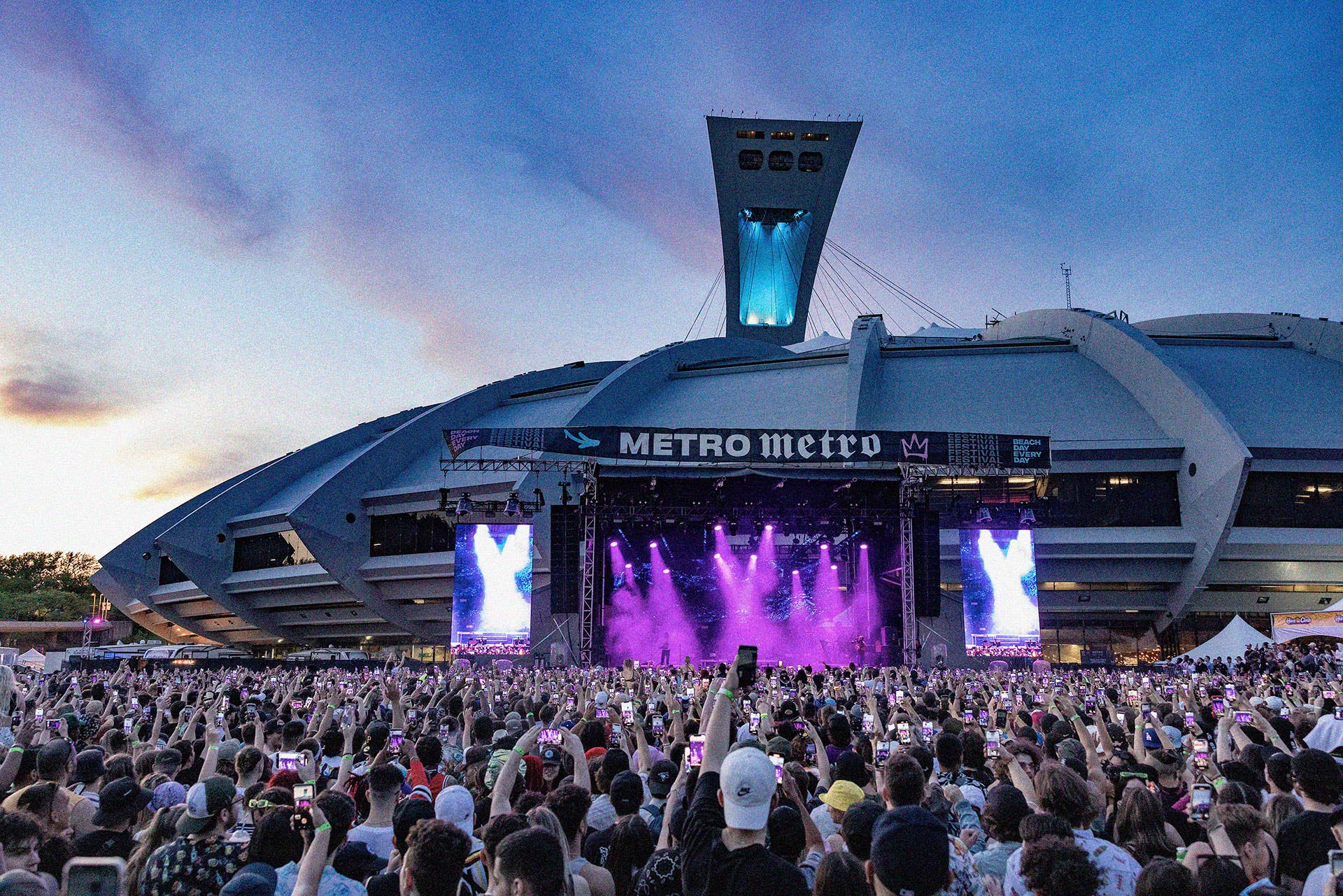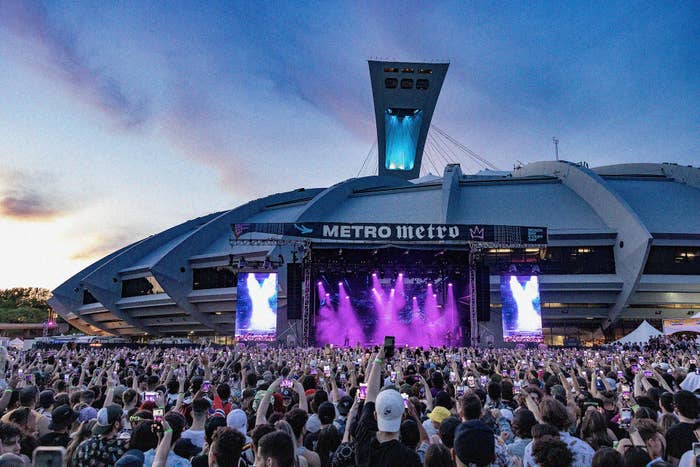
Over the past two years, the idea of attending a Canadian musical festival has felt like a pipe dream for many. There were high hopes when bookers announced their lineups, yet the recurring waves of COVID-19 crushed them as government restrictions once again prevented live shows. Nevertheless, there seems to be light at the end of the tunnel for deprived music enthusiasts.
In recent weeks, many of our country’s most beloved outdoor festivals have announced their returning bills set to take place over the coming months. From an outsider’s perspective, everything appears to be well in the music world once again. However, from an insider’s perspective, planning a festival in the post-pandemic era has been no easy feat.
Several factors have contributed to the many nuisances that event bookers have found themselves juggling to pull off a festival amid endless uncertainty surrounding the virus. Ever-changing provincial and federal health guidelines related to vaccination status, travel restrictions, and mask mandates were only the tip of the iceberg. Festival budgets following years of decreased revenue, artist availability among heavy booking competition, and high unpredictability surrounding further lockdowns all weighed heavily on the minds of bookers hoping to return to normal while assessing their risk levels.
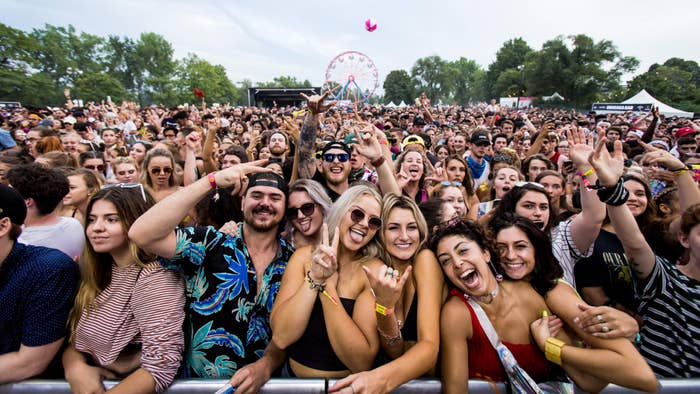
“We booked Osheaga three times to do it once,” said Nick Farkas, senior vice president of booking, concerts, and events at Evenko. “We booked it in 2020, booked it in 2021, and now we’re booking it again in 2022. The uncertainty, I think, is the biggest factor—the artist uncertainty, wondering whether Canada would be open, what were the restrictions going to be? I think that it all adds a complexity and element to the whole process that made it more stressful.”
As one of the country’s largest live entertainment companies, Farkas and his team were tasked with the difficult responsibility of booking several Evenko summer festivals at once—Osheaga, Ile Soniq, and the first edition of Lasso. With an increase in employee turnover since the start of the pandemic, many of the staff had never experienced behind-the-scenes festival mayhem before.
“After 36 months, you’re kind of out of practice.”
“The biggest challenge we’re going to have is not having done full festivals in 36 months,” said Farkas. “While supply chain issues are what everyone’s talking about, staffing is an absolute nightmare. Trying to find enough security guys, enough cooks, you know, there’s just a shortage of people working. What we’ve been noticing is that we have a huge amount of new employees who have never done festivals before. There’s a massive learning curve for our existing employees to train the new ones, and like I said, after 36 months, you’re kind of out of practice.”
When the pandemic initially struck in 2020, Montreal’s newfound hip-hop festival Metro Metro was forced to cancel its second iteration. On the scrapped bill were headliners Travis Scott, 50 Cent, and Young Thug, among many other heavy hitters slated to perform. After two years, the organizers found themselves in a different predicament than its initial go.
“We started booking in August 2021,” said Jonathan Marchitello, owner of the festival’s organizing company, Midway Group. “We had a bunch of names that don’t appear on the [new] lineup. The biggest challenge came in December when Omicron hit. We didn’t know what was going on. We didn’t know if there were even gonna be any festivals at all this season.”
At the time, the planned dates for Metro Metro were still up in the air. While Marchitello was hoping for it to take place in May like its 2019 predecessor, Midway Group’s partners at the Olympic Stadium tried to push the festival even further.
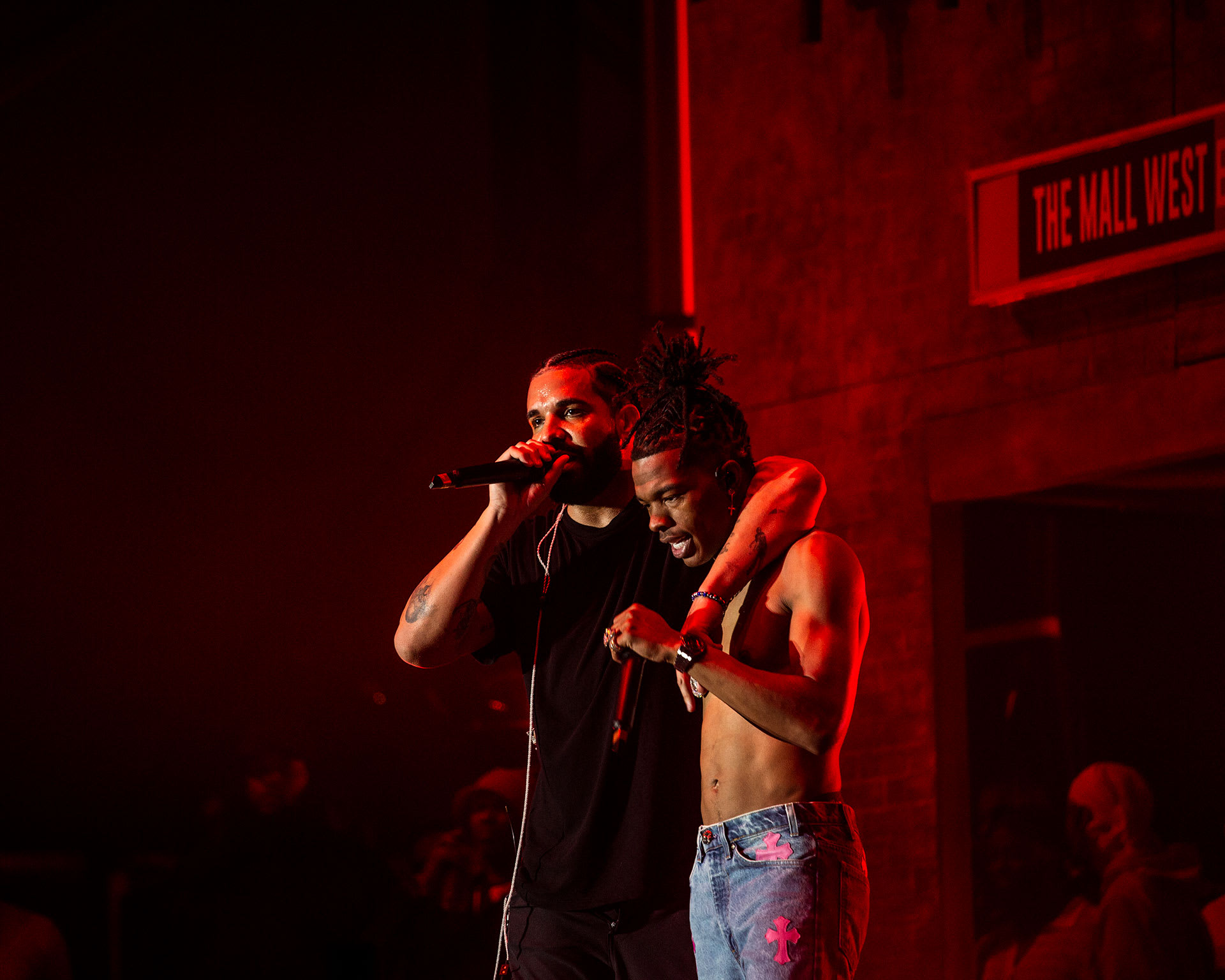
We were changing all the dates and pushing them back to July,” added Marchitello. “Then, out of nowhere, things started getting better. That’s when we decided to go back to our original date in May, but by then, all these artists had already been booked up.”
As a result, Metro Metro’s 2022 lineup looked very different from what their second anniversary would have looked like, with only a few artists trailing over from the original booking.
To make matters worse, the Montreal-based hip-hop festival lost two of its three headliners within the span of a few weeks. Young Thug was arrested for violating the Racketeer Influenced and Corrupt Organizations (RICO) Act, while Playboi Carti was allegedly denied entrance into Canada, according to Midway Group’s owner, Olivier Primeau. As well, Fivio Foreign dropped out without explanation.
Midway Group was quickly able to replace the headliners, with Trippie Redd and Tory Lanez replacing Young Thug, 50 Cent subbing in for Carti, and Sheck Wes taking Fivio Foreign’s timeslot. (Not to mention a surprise appearance by Drake during Lil Baby’s set.) Despite a quick turnaround, fans still voiced their anger on Metro Metro’s Instagram page, prompting Primeau to respond.
“The people who are mad at us don’t understand how complicated it is to organize a festival the size of Metro Metro,” Primeau wrote. “If you want to be mad at someone, be mad at the artist who has told us for four months that everything was looking good and then 48 hours before the festival tells us that he would have issues entering the country.”
“Hip-hop grew exponentially during the pandemic. There were average artists that we paid about $50,000 to $60,000 per show that are now charging $100,000 to $120,000.”
While Metro Metro may have been the first hip-hop-centric festival based in Canada in 2022, fan favourite Rolling Loud recently unveiled their inaugural Canadian iteration set for early September in Toronto. Upon its booking, Rolling Loud founders Matt Zingler and Tariq Cherif spent countless hours weighing which artists would be big enough draws for the festival. When asked what their difficulties were, one of their reps referred us to Complex’s recap of Rolling Loud New York 2021 and described how their struggles with booking a Canadian edition were quite similar to those of last year’s edition when organizing their post-pandemic return in Miami.
Many of these difficulties were echoed by other Canadian music festivals like Festival Santa Teresa, located in the Montreal suburb of Sainte-Therese and featuring headlining acts Jimmy Eat World, Princess Nokia, and $NOT.
“A lot of these shows have been rescheduled or canceled so when we contacted some bands, they had already been booked and their calendars were full,” said Patrick Kearney, Santa Teresa’s general director.
Crafting a star-studded lineup strong enough to convince concertgoers to leave their homes was only half the battle. With minimal revenue after two years of no income, the festival budgets became a real concern.
Santa Teresa, a small festival in comparison to Quebec’s big festival draws, said they had become concerned with their financial planning before receiving government subsidies from federal and provincial bodies. Kearney thanked advance ticket sales for alleviating some cash flow stressors prior to the government funding.
To make matters worse, not only were festivals now working on a tighter budget, but the majority of artist booking costs increased over the last two years.
“90 percent of the artists’ prices did go up compared to what they charged in 2020,” said Marchitello. “I mean, hip-hop grew exponentially during the pandemic. There were average artists that we paid about $50,000 to $60,000 per show that are now charging $100,000 to $120,000.”
Even festivals on the other side of the country have felt the effects of a tightened budget.
“We’re starting off with a smaller budget this year,” said Debbi Salmonsen, artistic and executive director of the Vancouver Folk Music Festival. “That’s why we’ve reduced one of our daytime stages, with the hope of trying to make up for some extra COVID-related expenses or health and safety expenses that we’re going to add in this year.”
Despite the COVID-related expenses that some festivals are opting to spend on to keep their concert-going customers safe during their experience, even estimating how many people will actually come out for such large gatherings is up in the air.
“With two years of having gone digital and with people all having different comfort levels about attending live events, even if they’re outdoors and in beautiful beach parks, ticket sales are an uncertainty this year,” said Salmonsen.
Many festivals found themselves in a predicament between wanting to ensure the health and safety of the fans while trying to maximize profits and see a return to normal. With various provincial governments changing their rules frequently and without warning, festivals had to adapt and prepare for the possibility of stricter rules as cases started to increase.
“The Festival d’été de Québec (FEQ), along with several other major event bookers, co-signed a letter sent to the Quebec government in February stating that if we wished to have a festival season this summer like those pre-COVID, we needed confirmation that there wouldn’t be any social distancing,” said Anne Hudon, the FEQ’s general director. Many bookers feared that additional mandates would ruin any chances of festival normalcy.
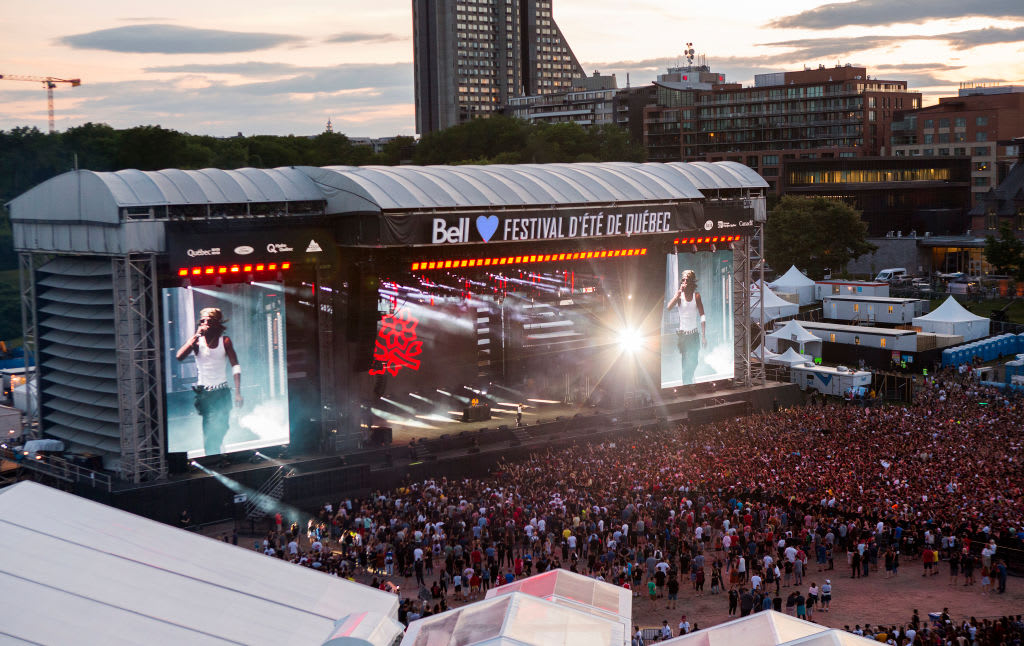
Yet, despite all the bumps and roadblocks along the way, festivals are looking to resume full-speed ahead in the coming weeks. With thousands of concerts and hundreds of festivals scheduled to take place across the country, eager music fans will have no shortage of choices to keep them busy and content this festival season.
“I want to say something positive, which is that we feel really blessed and lucky to be able to be coming back with a live event,” said Salmonsen. “We hope we’ll have another decade ahead of us and people that join our festival. I find these artists are super excited to come and play and we’re really excited to help them do that. The majority of people we’re hearing from are really excited that we’re coming back and that our event is continuing and I hope that is true for other festivals across the country.”
“I think the most motivating thing will be the energy we get from actually doing the festivals and the team coming together for it all. That’s going to be when it’ll all be worth it,” said Farkas.
Like a breath of fresh air, bookers can soon let out a sigh of relief knowing that their hardships were worth the reward.
